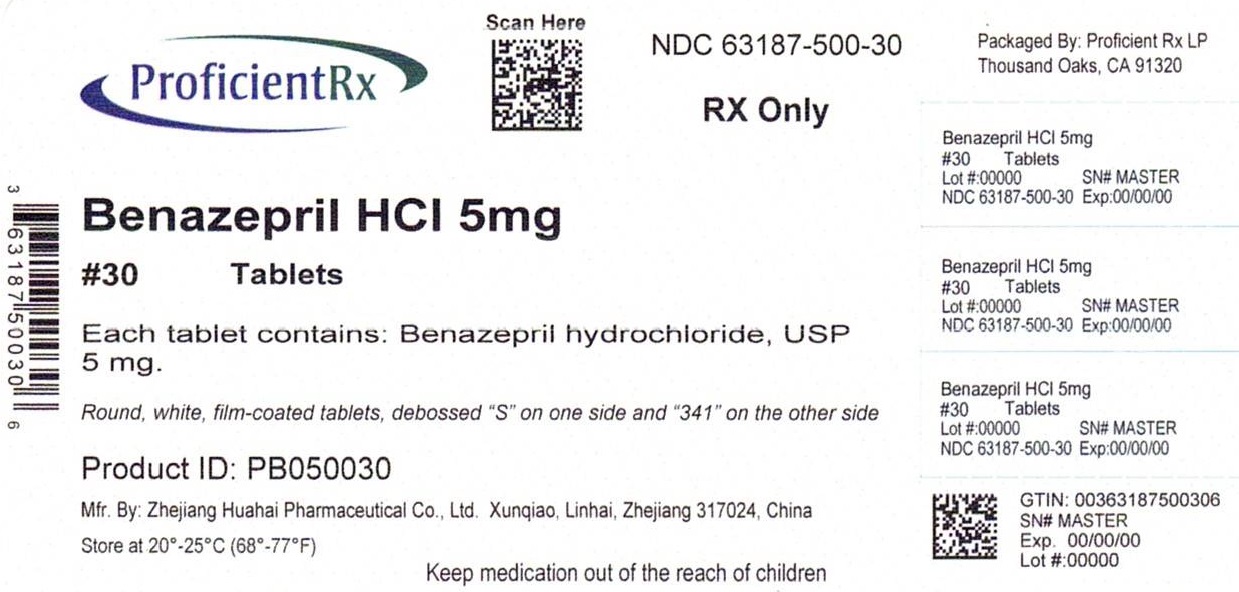![Isopropyl Alcohol 70 Percent (Isopropyl Alcohol) Liquid [Preferred Plus (Kinray)] Isopropyl Alcohol 70 Percent (Isopropyl Alcohol) Liquid [Preferred Plus (Kinray)]](/wp-content/themes/bootstrap/assets/img/loading2.gif)
Hypertension
Adults
The recommended initial dose for patients not receiving a diuretic is 10 mg once a day. The usual maintenance dosage range is 20-40 mg per day administered as a single dose or in two equally divided doses. A dose of 80 mg gives an increased response, but experience with this dose is limited. The divided regimen was more effective in controlling trough (pre-dosing) blood pressure than the same dose given as a once-daily regimen. Dosage adjustment should be based on measurement of peak (2-6 hours after dosing) and trough responses. If a once-daily regimen does not give adequate trough response, an increase in dosage or divided administration should be considered. If blood pressure is not controlled with benazepril hydrochloride tablets alone, a diuretic can be added.
Total daily doses above 80 mg have not been evaluated.
Concomitant administration of benazepril hydrochloride tablets with potassium supplements, potassium salt substitutes, or potassium-sparing diuretics can lead to increases of serum potassium (see PRECAUTIONS).
In patients who are currently being treated with a diuretic, symptomatic hypotension occasionally can occur following the initial dose of benazepril hydrochloride tablets. To reduce the likelihood of hypotension, the diuretic should, if possible, be discontinued two to three days prior to beginning therapy with benazepril hydrochloride tablets (see WARNINGS). Then, if blood pressure is not controlled with benazepril hydrochloride tablets alone, diuretic therapy should be resumed.
If the diuretic cannot be discontinued, an initial dose of 5 mg benazepril should be used to avoid excessive hypotension.
Pediatrics
In children, doses of benazepril hydrochloride between 0.1 and 0.6 mg/kg once daily have been studied, and doses greater than 0.1 mg/kg were shown to reduce blood pressure (see Pharmacodynamics). Based on this, the recommended starting dose of benazepril hydrochloride is 0.2 mg/kg once per day as monotherapy. Doses above 0.6 mg/kg (or in excess of 40 mg daily) have not been studied in pediatric patients.
For pediatric patients who cannot swallow tablets, or for whom the calculated dosage (mg/kg) does not correspond to the available tablet strengths for benazepril hydrochloride tablets, follow the suspension preparation instructions below to administer benazepril hydrochloride tablets as a suspension.
Treatment with benazepril hydrochloride tablets is not advised for children below the age of 6 years (see PRECAUTIONS, Pediatric Use) and in pediatric patients with glomerular filtration rate <30 mL, as there are insufficient data available to support a dosing recommendation in these groups.
For Hypertensive Patients with Renal Impairment
For patients with a creatinine clearance <30 mL/min/1.73 m2 (serum creatinine >3 mg/dL), the recommended initial dose is 5 mg benazepril hydrochloride tablet once daily. Dosage may be titrated upward until blood pressure is controlled or to a maximum total daily dose of 40 mg (see WARNINGS).
Preparation of Suspension (for 150 mL of a 2 mg/mL suspension)
Add 75 mL of Ora-Plus®* oral suspending vehicle to an amber polyethylene terephthalate (PET) bottle containing fifteen benazepril hydrochloride 20 mg tablets, and shake for at least 2 minutes. Allow the suspension to stand for a minimum of 1 hour. After the standing time, shake the suspension for a minimum of 1 additional minute. Add 75 mL of Ora-Sweet®* oral syrup vehicle to the bottle and shake the suspension to disperse the ingredients. The suspension should be refrigerated at 2-8°C (36-46°F) and can be stored for up to 30 days in the PET bottle with a child-resistant screw-cap closure. Shake the suspension before each use.
*Ora-Plus® and Ora-Sweet® are registered trademarks of Paddock Laboratories, Inc. Ora-Plus® contains carrageenan, citric acid, methylparaben, microcrystalline cellulose, carboxymethylcellulose sodium, potassium sorbate, simethicone, sodium phosphate monobasic, xanthan gum, and water. Ora-Sweet® contains citric acid, berry citrus flavorant, glycerin, methylparaben, potassium sorbate, sodium phosphate monobasic, sorbitol, sucrose, and water.



![Isopropyl Alcohol 70 Percent (Isopropyl Alcohol) Liquid [Smart Sense (Kmart)]](http://dailymed.nlm.nih.gov/dailymed/image.cfm?setid=5a9d5835-9408-4f9d-a293-d1cc0a049dd5&name=isopropyl-alcohol-70-percent-1.jpg)
![Isopropyl Alcohol 70 Percent (Isopropyl Alcohol) Liquid [Amerisourcebergen Drug Corporation (Good Neighbor Pharmacy) 24385]](http://dailymed.nlm.nih.gov/dailymed/image.cfm?setid=c2b6e4b6-c5fb-4c45-b38d-483b380564d6&name=isopropyl-alcohol-70-percent-1.jpg)
![Isopropyl Alcohol 70 Percent (Isopropyl Alcohol) Liquid [Freds Inc]](http://dailymed.nlm.nih.gov/dailymed/image.cfm?setid=2df5037f-fca3-4198-b49f-ba9a3f6e371e&name=isopropyl-70-percent-rubbing-alcohol-1.jpg)
![Isopropyl Alcohol 70 Percent (Isopropyl Alcohol) Liquid [Sam’s West, Inc]](http://dailymed.nlm.nih.gov/dailymed/image.cfm?setid=b03406aa-5545-4e83-8642-2fc476829b5b&name=isopropyl-alcohol-70-percent-simply-right-1.jpg)
![Isopropyl Alcohol 70 Percent (Isopropyl Alcohol) Liquid [Top Care (Topco Associates Llc)]](http://dailymed.nlm.nih.gov/dailymed/image.cfm?setid=afe23634-27a4-46cf-b428-8fa3a274712c&name=isopropyl-alcohol-70-percent-1.jpg)
![Isopropyl Alcohol 70 Percent (Isopropyl Alcohol) Liquid [Top Care (Topco Associates Llc)]](http://dailymed.nlm.nih.gov/dailymed/image.cfm?setid=25601132-3eff-4361-b0a9-ea6493a2091d&name=isopropyl-alcohol-70-percent-wintergreen-1.jpg)
![Isopropyl Alcohol 70 Percent (Isopropyl Alcohol) Liquid [Rite Aid]](http://dailymed.nlm.nih.gov/dailymed/image.cfm?setid=bf2d9468-e1c9-47d5-a859-3dc3745b8575&name=label.jpg)
![Isopropyl Alcohol 70 Percent (Isopropyl Alcohol) Liquid [Equate (Walmart Stores, Inc.)]](http://dailymed.nlm.nih.gov/dailymed/image.cfm?setid=24f6090f-82e9-4587-81ac-e294fb6cfda3&name=isopropyl-alcohol-70-percent-1.jpg)
![Isopropyl Alcohol 70 Percent (Isopropyl Alcohol) Liquid [Family Dollar (Family Wellness)]](http://dailymed.nlm.nih.gov/dailymed/image.cfm?setid=67f75de7-a8f6-4973-b8d1-4dee623c9a66&name=50-percent-isopropyl-alcohol-wintergreen-1.jpg)
![Isopropyl Alcohol 70 Percent (Isopropyl Alcohol) Liquid [Quality Choice (Chain Drug Marketing Association)]](http://dailymed.nlm.nih.gov/dailymed/image.cfm?setid=0d0c2b6e-ce96-4d0b-a601-5d5e1b292025&name=isopropyl-alcohol-70-percent-1.jpg)
![Isopropyl Alcohol 70 Percent (Isopropyl Alcohol) Liquid [National Distribution Network (Smart Choice)]](http://dailymed.nlm.nih.gov/dailymed/image.cfm?setid=a51bd78d-2330-414a-92d2-fffacb34e185&name=isopropyl-alcohol-70-percent-1.jpg)
![Isopropyl Alcohol 70 Percent (Isopropyl Alcohol) Liquid [Marlex Pharmaceuticals Inc]](http://dailymed.nlm.nih.gov/dailymed/image.cfm?setid=0cd5ad3d-338e-4df5-892f-8f904687634a&name=isopropyl-alcohol-70-percent-01.jpg)
![Isopropyl Alcohol 70 Percent (Isopropyl Alcohol) Liquid [Target Corporation]](https://www.recallguide.org/wp-content/themes/bootstrap/assets/img/drug-image-placeholder.jpg)